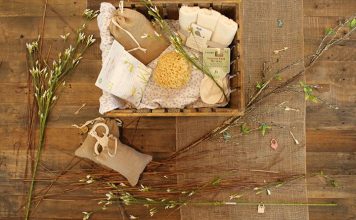| Issue #117 • May/June, 2009 |
In the bustling 19th century, Henry David Thoreau urged us to “simplify, simplify, simplify.”
In the even more hectic 20th and 21st centuries, writer, philosopher, and frugalista Wendy McElroy thinks the master of Walden made matters too complicated. She says just plain “simplify.”
But the question is: How?
A lot of us who move from the city to the country are seeking some form of simplicity. But simplicity ain’t so easy. For starters, we might have different ideas of what simplicity means.
Some crave the comprehensive frugality and small-scale living of the voluntary-simplicity movementtiny homes, debt freedom, simple diets, low consumption, thoughtful actions, and a more modest impact on planet Earth. Others merely feel driven to get out of the rat race, or away from the crime, costs, traffic, and shallow lures of urban living; they know what they’re running from, but might only have a sketchy idea of what they’re running to. Maybe others have spent a lot of time in the backwoods, know the life well, and crave the sort of primitive living that would scare the bejabbers out of most of us. But how to get that is another thing.
So right from the start we face the complex questions of, “What do I really want?” and “What is achievable?”
Then, no matter what we’re seeking, as we’ve noted in these pages before, it’s pretty darned common for simplicity-seekers to land themselves in a soup of everyday complications. They might be different complications than those you’d meet at 5 p.m. on a Boston freeway or deep in the bowels of a Silicon Valley corporate office labyrinth. But they’re still complicated.
The basement just flooded. A calf must be pulled. Vandals cut the barbed-wire fence. The baler won’t bale. Drought killed the corn and a blight hit the apple trees. The youngest kid just fell into the pigpen and the oldest whines because there isn’t a mall within 50 miles. The elk that were so plentiful last year are nowhere to be found this fall and the freezer’s looking frighteningly empty. Cousin Ernie wants to move in and live the easy life with you, while Sister Sue is telling the rest of the family you’ve gone completely mad because you moved to a mud-filled mosquito bog instead of enjoying the pleasures of the multiplex and the gym.
And on some days, the multiplex and the gym sound pretty good to you, too. In fact, maybe they sound betterand simplerthan the “simple country life” you aimed for.
But don’t despair!
Simplicity might get complicated, but it can be simplified again. It’s mostly a matter of shucking the nonessential and keeping the rest of life in perspective.
I know this from long experience. The ten mini-lessons that follow are ones I’ve had to teach myselfsometimes repeatedlyover the years. But they do helpeven when the person teaching the lesson and the person learning it are both full-fledged members of Densa, the society for the not-so-smart. (I know that from experience, too.)
Ready? Here goes.
Set doable goals
To get someplace, you’ve got to know where you want to get. And have a route to get there. So there are two parts to effective goal setting: What and how.
Know (or at least have a reasonable idea) what you want to achieve, then take realistic steps to achieve it. When things get roughand they willkeep both the aim and the path in mind.
If you’re the type to lay out detailed plans and follow them across the years, more power to you. (I’m not.) But even if all you do is keep your goal in mind and take one step at a time in its general direction, you’re good. You’re certainly better off than if you either plunk yourself down in gloom (“There’s no use even trying!”) or leap into something without taking your brains with you.
A few years ago for instancebefore there were wifi hotspots everywhere and affordable satellite Internet dishes poking from the sides of barnsa family I know decided to leap into that proverbial “simple country life.” They sold out, packed up, and moved into a dilapidated old farmhouse, absolutely confident that they could earn a remote living by telecommuting. Oops. Connectivity was so poor that they couldn’t keep their professional commitments. Thenwhat do you know?all those debts they didn’t bother to pay off when they headed for the hinterlands suddenly loomed extra large. Back to the city the little family limped.
But when you “keep your eyes on the prize” and move toward it like a long-distance runner pacing himself appropriately, matters look different. They look simpler.
In the inspiring book Flow, which examines peak states of human experience, psychologist Mihaly Csikszentmihalyi lays out a formula for achieving optimal satisfaction: Purpose + resolution = harmony. Have an aim (your purpose) that fits your temperament and interests. Approach it with the resolve to work devotedly on it. In the act of working toward your goal, you achieve inner harmonyharmony being that state where all of life’s complexities resolve into one divine simplicity.
This process works for big goals (like planning how to get from city to country) and small ones (like figuring out how to fix that pesky baler once the country is beginning to get to you). The wonderful part is that you don’t even have to achieve the goal to get simple satisfaction out of it. The process becomes a pleasure in itself, as the rest of the world’s concerns fall away and the details of the task become your primary focus.
Don’t worry about anybody else’s opinion
Remember: Country people are independent thinkers. They have to be to survive and thrive. If you’re planning a radical move to a backwoods lifestyle, or if you’ve just made one, you’re likely to be hit (and sometimes “hit” feels like exactly the right word) with all kinds of opinions and advice. You’re a fool. You won’t last a year. Your children will be deprived of opportunities. You’re a lazy bum who can’t face reality. You’re going to be surrounded by inbred rednecks who’ll never accept you. You’ll go broke. You’re neglecting your mother or your father. Yada yada.
Sure, you should listen (with one ear, at least) to the ancient backwoods local who tells you you probably won’t find water in that spot. Certainly you should heed the new neighbor’s warning about mountain lions in the area or petty thieves who live a mile down the road. But pay no attention to your city-bound adult child who resents you moving away or the suburban neighbor who sneers that you’ll “come to your senses” within the year.
Chalk all that city-bred negativism up to envy. Slash through those confusing and contradictory opinions, all those nagging words aimed at instilling self-doubtand do what you want to do. Clarity of thought and action is another form of simplicity.
Figure out what’s really of value
In this 10-lesson plan, it’s hard to know exactly where to put this item because it’s something we need to do both before and after moving to the country. In fact, simplicity-seeking is a constant process of discovering what we can do withoutand what we can’t. When we go in search of simplicity, we’re like Diogenes, setting off with a lamp and a cup seeking an honest man. If you remember, Diogenes ditched the drinking vessel after watching children slurping water out of their cupped hands.
Sometimes simplicity-seeking is also a matter of discovering that we might actually be better off shucking something we’re deeply attached to. You never know until the moment comes.
The process of simplifying doesn’t merely apply to possessions. It also applies to attitudes, to certain types of work, perhaps to relationships, and a whole host of other things we’re used to living with. You might need to get rid of furniture, cars, boats, and toys. But you also might need to cut off a relationship with a beloved, but troubled, relative. You might need to find a different way to earn a living. You might need to surrender certain assumptions and biases.
Howeverand this is a big howeversimplification does not entail sacrificing things you truly love. You should give up only those things that hinder your quest.
But very often, to our own surprise, we discover that something we love, or once loved, has become a burden. There was a time, for example, when I owned hundreds and hundreds of books. The thought of letting go of a single one was…well, unthinkable. But after hauling them here and there (and if you’ve ever moved loads of books, you’ll know that schlepping grand pianos is easier), I let them all go. Now I have 20 or 30 books that are particularly useful or particularly prizedand a small-town library that loans me big-city wonders of literature. What I once thought would be a wrenching loss evoked a sigh of relief once I reached the right moment of letting go.
That’s so often the case. We fear that simplicity means sacrifice and surrenderand in a way it does. But it’s amazing how often we discover that “less is more”that we feel lighter when we’ve let go of something. Once again, though, your simplicity might be entirely different than someone else’s. And something that is simple in one way might be complicated in another. For example, simplicity to me implies clean, spare, open surroundings with a minimum of clutter. The more stuff I get rid of, the happier I feel. But the guy who has a yard full of old cars and washing machines has a simpler time of it when he needs a spare part to fix or build something. So it’s all a matter of perspective.
Defeat the debt dragon
Debt is someone else’s claim on your future. Debt is a complication. Debt usually means you have to work harder just to live. None of these things is conducive to the simple life. But of course, debt really can be a dragonan opponent so big and looming you think it’ll kill you before you slay it.
I’ve written before about ways to deal with debt and painless ways to save money (see BHM Issues #83, (Sept/Oct 2003), and #107, (Sept/Oct 2007), so I won’t go into detail here. But the bottom line is: If you’re in debt, plan and then venture your way out of it. When you do that, you’re venturing toward a simpler life.
If your debt really is huge (and your income not-so-huge), focus on putting a little extra toward one debt at a time. Experts will tell you to concentrate on the debt that carries the highest interest. I say concentrate on the debt that you hate the most, the one you most want to be rid of. Or the one you can slay the quickest.
And remember Granny’s old maxim about using up, wearing out, making due, or doing without. That’ll help you avoid incurring more debt. BHM can be a lot of help in that department.
Avoid multi-tasking while taking conscious advantage of “multi-purposing”
We tend to blame all sorts of external factors for complicating our lives. It’s certainly true that reality places huge demands on us and has a way of delivering nasty, complicated surprises just when we finally think we’ve got our act together. Sometimes we can cope easily with those outside distractions. Sometimes not.
But there’s one thing we can always simplify, even though it may require a lot of discipline. That’s our own habit of multi-tasking. Modern life has taught us to do six things at once. But human history and biology never programmed us for that, and multi-tasking, no matter how accustomed to it we think we are, is a terrible stressor. We may be proud of our ability to write a report while watching TV while eating dinner while entertaining the baby while thinking about whether the cucumbers will be ready to harvest tomorrow. But that level of activity doesn’t make us happy or productive. And it’s the antithesis of simple.
How about this? Instead of doing several things at once, gradually train yourself to make one activity serve several purposes. Classic example: Outdoor work gets things accomplished. But it’s also a form of exercise (you won’t miss that gym!) and may afford an opportunity for meditation and recollection. So let the work multi-task for your sakerather than you multi-tasking for it.
Yes, it’s hard to change habits. And it’s easy to tell ourselves, “If I don’t multi-task, nothing will get done!” But that’s not true. Your work will still get done, and is likely to get done better if you give it focused energy. You’ll feel less frantic about it, too. Try it; it takes about 21 days of solid effort to establish a new habit and the habit of simplifying your approach to work is well worth doing.
Then when you’ve begun to love the pattern of doing one workaday task at a time, start doing the same thing with your mental focus. Instead of watching your thoughts dart like hummingbirds from this topic to that, gradually and gently bring those thoughts into focus on the task, plan, or pleasure that’s immediately before you.
Don’t sweat the small stuff
I thought about titling this item “DON’T PANIC!” in honor of The Hitchhiker’s Guide to the Galaxy. However you put it, the message is the same. Life just loves to smack us with challenges we don’t want and aren’t ready for. It’s so easy, when thus clobbered, to go, “Blaaaaaaaaahhhhhhh!” and fall apart.
It’s even easier to worry constantly about stuff we don’t really need to worry about. (Again, trust me on this one; I’m a world-class worrier.) We’re often like the Flutterbudgets in the book The Emerald City of Oz. We’re like the woman who raced out of her home to implore little Dorothy and her companions, “Save my baby! Save my baby!” The baby was perfectly safe in Mother’s arms, but the woman was terrified that if she put the baby on the windowsill and if the baby fell out and if there was a hill outside the house and if the baby rolled down the hill, and if there were lions and tigers at the bottom of the hill…well, you get the point.
A certain level of concern is a good thing because it leads to foresight and preparedness. But panicking when things don’t go our way or worrying about things we can’t do anything about is…just complicated.
When you get right down to it, nearly everything we face in this enormous, ancient world is really “small stuff” in the vast flow of time. Next time you’re tempted to freak over one of life’s ordinary nasties or worry about something beyond your ability to fix, take a deep breath and whisper to yourself the Serenity Prayer (“God grant me the serenity to accept the things I cannot change; courage to change the things I can; and wisdom to know the difference.”)
Don’t sweat so much of the big stuff, either
Sometimes the state of the world drives us to crave country simplicity. We want to lower our carbon footprint, pay fewer taxes, or have more choices about how we conduct our lives, educate our children, or run our business. We want to escape all those outside forces or we want to stop contributing to the problem. Then ironically, we keep our eyes and ears on the news even as we retreat toward that famous “simple country life.” We stay riled about the very things we say we’re trying to get away from.
One of the biggest problems I see in myself and friends who are “political” is our habit of getting all knotted up about news, even when we’re far removed from its horrors and have taken all the steps we can to not be part of whatever horror the media keeps telling us about.
Of course it is important to stay informed. We do need to keep a watchful eye on whatever unpleasant plans governments may have for us. If not for country people being watchful about the National Animal Identification System, for instance, that ghastly plan to tag and surveil our homes and all our animals would be a lot further along than it is.
But the truth is that we’re mostly over informed these days. We hear and see too much newsand it’s nearly all designed to alarm, upset, scare, or disgust us. Most of us could easily cut 90 percent of the news out of our lives and still be well informed about the issues that matter to us.
So shut off the TV, visit fewer online news sites, listen to less radio. Focus more on what’s in your immediate environs. You won’t be uninformed. But you might be more sane. And the world will seem a simpler, less troubled and threatening place.
Cultivate community
When we turn our senses away from Washington, DC, Brussels, or Sacramento we have more energy to turn toward the news that really matters and the people who can have the greatest influence in our worldour family, our neighbors, our community.
I’ve written about this many times before, so I won’t go on. But let’s not let our neighbors be strangers while the host of our favorite talk show becomes our best friend. The reality should be the other way around.
If at first you don’t succeed…
During the 14th century there was an affiliation of French knights called the Order of the Star. In an era that valued valor above all, these guys took bravery one step further. To become a member of the order, you had to swear an oath that you would never, ever, retreat from battle, no matter how bad things got.
You might wonder, with our popular culture being saturated in all kinds of Medieval heroicism, from Robin Hood to King Arthur, why you’ve never heard of the hyper-couragous men of The Order of the Star. Well, the answer is simple: Since they refused to retreat even when they were hopelessly beaten, they mostly got killed off. Really quickly. Like the first time they faced a formidable foe. Within five years, they were nearly all dead. And they’d gotten their king captured by the enemy, to boot. The wiser ones broke their vow, retreated, survivedbut weren’t boasting about belonging to an undefeatable knightly order any more. End of story.
Sometimes, no matter how we try, we end up defeated. Or at least severely set back. The money runs out. The wife insists on returning to civilization. The husband won’t work hard enough. Illness intervenes. Or (and this happens way more often than we like to admit) we just plain screw up; our country-living goals turn out to be unrealistic or we discover we just plain don’t like the lifestyle we thought we were so eager to achieve. Maybe our priorities change for some unforeseeable reason. For whatever reason, things just aren’t working. Our quest for simplicity has become so complicated and such a drag on our energies we wonder what the heck we’ve gotten ourselves into.
It happens. And it’s a big deal in that moment. Maybe it’s a big, life-changing deal from which we’ll never fully recover. But “failure” doesn’t have to be the end of all things. You and I both know that “failure” offers some of life’s most valuableif unpleasantlearning experiences.
Let’s say your failure is so great that you decide to retreat to the city, rejoin the gym, and travel the freeways once again. So be it. You return a different person than you were when you left. You have a different perspective, different relationships, different priorities. Maybe you have a new and clearer set of goals for your city life, a new appreciation for city opportunities. Maybe you feel more centered and focused. Perhaps you know yourself or your family better than you did before. Maybe you know you’ll return to the country someday, but that right now the timing just isn’t right. You’ve gained even as you’ve lost.
Maybe, on the other hand, your “failure” isn’t a failure at all. Let’s say you don’t retreat from the country or from the quest for greater simplicity. You simply step back, take a deep breath, reassess, then go on with greater understanding. Heck, I’d count that sort of failure as a victory.
To gain from “failure,” you must both reassess and act. If you reassess but never act, you’ve truly defeated yourself. If you act without reassessment, you’re merely pursuing the classic definition of insanity: repeating the same mistakes in hopes of getting a different result. But if you learn from the uglies that nature or your own poor planning threw at you…then you’ve got hope of interesting adventures to come.
Vaya con Dios
Go with Godor the spiritual force of your choice.
And I’m not just talking to religious people when I say that. Call it “God,” “flow,” “spirit,” “the Tao,” “the path,” “your bliss” or something else…follow where your innermost guide leads and you will almost certainly end up in the place you need to be. It might not always be the place you expected to end up. But it will be a place you needed to reach.
Purpose + resolution = harmony
Harmony = simplicity
And better yet, harmonyin life as in musicequals a higher level of simplicity. It is a more sophisticated, profound form of simplicity because it’s derived from complex elements. You could no doubt enjoy a certain dull form of simplicity by always taking the safe and easy way. You can learn and sing “Three Blind Mice” a lot more easily than you can learn and sing the glorious harmonic simplicity of Gregorian chant or the playful simplicity of Ella Fitzgerald-style scatjust as you could have a simple life by not doing much of nothing and avoiding challenges. But that’s not really what you want, is it?
Several of the ten lessons here have touched on a point that could be summed up as “internal simplicity”remaining calm under pressure, eliminating multi-tasking, focusing the mind on goals rather than being pulled this way and that by random input, filtering out non-essentials, and knowing what you really desire.
It’s true; cultivating some form of internal simplicity issimply!the most important thing we’ll ever do in our move toward simplification. Believe me, I know from experience that you can have the most stripped-down, low-cost lifestyle and still drive yourself bonkers by fretting about things you don’t need to fret about or getting yourself into commitments you shouldn’t have committed to. We humans just love to complicate everything. Establishing and always bringing ourselves back to a point of internal, focused simplicity makes us better able to handle the “complicated moments” that are inevitable in every lifeand certainly in every country life.
Is it simple to simplify? Nope. Not usually. It can mean working through all manner of complexitythen discarding unneeded complexities along the way. It would be simpler never to take the path, never to start off on the adventure. It would be easier to stay at home, watch TV, haunt the malls, do what your friends do, believe what the media tells you, live as millions of others do, and think whatever your family taught you to think.
But I’m with Supreme Court Justice Oliver Wendell Holmes Jr., who said, “I would not give a fig for the simplicity this side of complexity, but I would give my life for the simplicity on the other side of complexity.”














